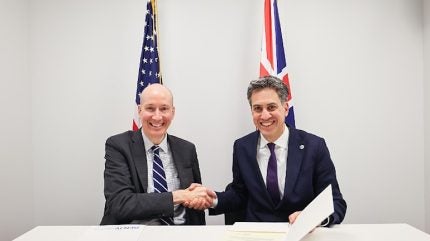
From next year, Western countries will not allow Russia to participate in the Generation IV International Forum (GIF), the UK Department for Energy Security and Net Zero (DESNZ) said in a statement. “The Generation IV International Forum will no longer include Russia – ensuring future collaborations remain among mutually willing parties who respect nuclear safety norms,” the statement said.
GIF was established in 2001 as a co-operative international endeavour seeking to develop the research necessary to test the feasibility and performance of fourth generation nuclear systems (Gen-IV systems), and to make them available for industrial deployment by 2030. Its current membership includes 13 countries (Argentina, Australia, Brazil, Canada, China, France, Japan, Korea, Russia, South Africa, Switzerland, the UK and the US) as well as Euratom – representing the 27 European Union members − to co-ordinate research and development on these systems.
The GIF has selected six reactor technologies for further research and development: the gas-cooled fast reactor (GFR), the lead-cooled fast reactor (LFR), the molten salt reactor (MSR), the sodium-cooled fast reactor (SFR), the supercritical-water-cooled reactor (SCWR) and the very high-temperature reactor (VHTR). The OECD Nuclear Energy Agency (NEA) serves as technical secretariat to GIF. Russia has played a key role in GIF’s activities.
However, the US and UK, at COP29 in Baku, signed the new framework agreement to allow GIF to continue after the current agreement expires in February. The agreement was signed by UK Energy Secretary Ed Miliband and US Deputy Secretary of Energy David Turk. The UK said the aim was to “support information-sharing on advanced nuclear technologies” and could see “billions” pooled in research and development.
Miliband said: “Nuclear will play a vital role in our clean energy future. That is why we are working closely with our allies to unleash the potential of cutting-edge nuclear technology. Advanced nuclear technology will help decarbonise industry by providing low-carbon heat and power, supporting new jobs and investment here in the UK.”
The statement also said that the agreement would exclude Russia from the next phase of GIF. The US and the UK were the first two members to sign the new Framework Agreement and once a third country signs, it will officially come into force on 1 March 2025. Other members then have three years to take the treaty through their national decision-making bodies if they wish to continue to participate in GIF activities.
In total, 11 current GIF members are expected to sign the new framework agreement, including Canada, China, France, Japan, South Korea, South Africa, Euratom and Switzerland. Australia, which does not have nuclear power, was on an initial list of those expected to sign, but a government spokesman has said it would remain an “observer”. Argentina and Brazil have the status of “non-active member”, which is applicable “only in the case of GIF founding members that did not then sign and ratify the GIF Framework Agreement”.






